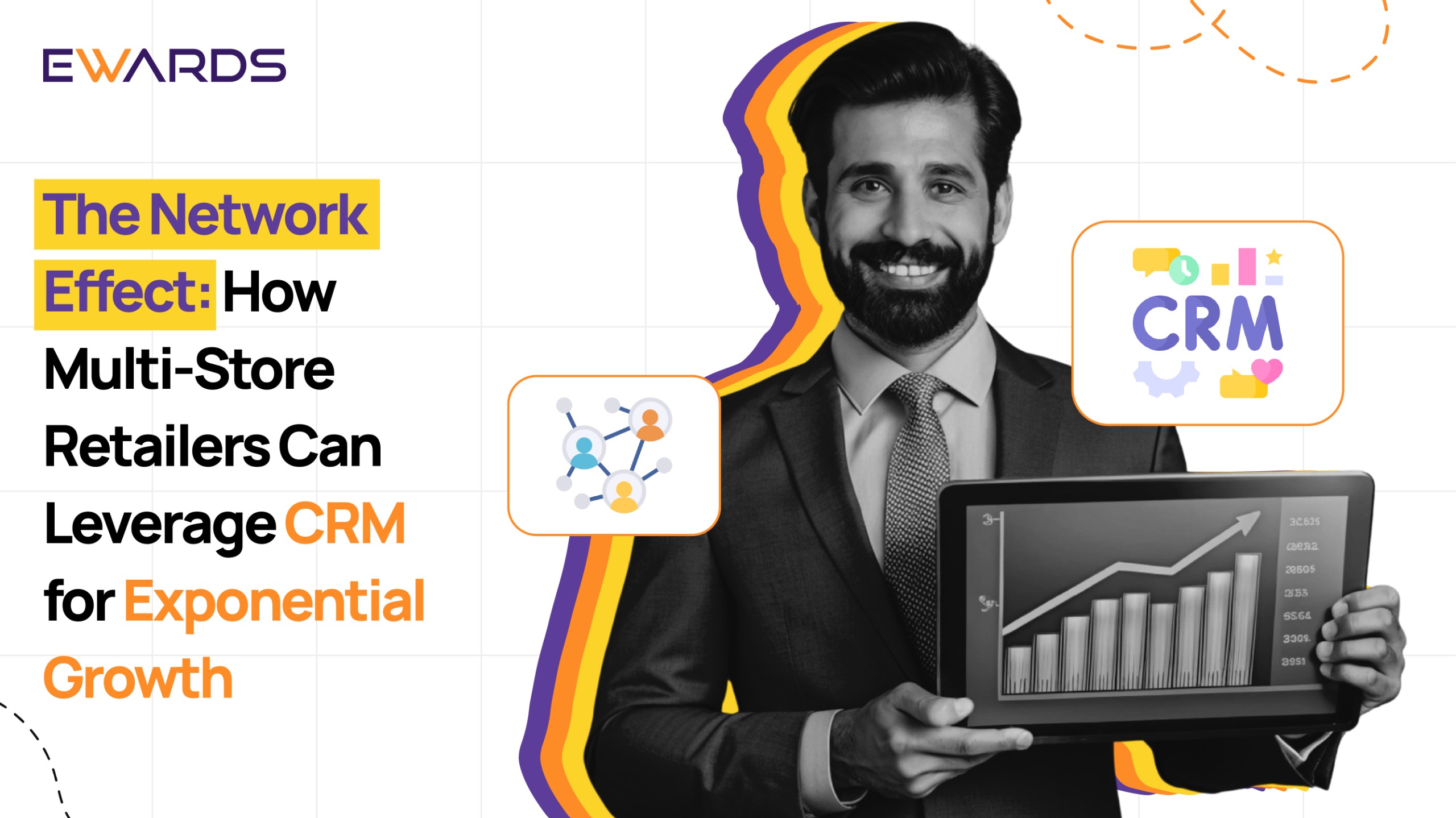
The network effect is a business principle which means that when an additional node (or store) in a network tends to add an incremental value to the entire system. For multi-store retailers, this means every new location does not just increase reach but also strengthens customer engagement and brand loyalty across all stores.
What is the Network Effect in Retail?
The network effect is an important aspect for multi-store retailers as it can amplify the value of their offerings. As more and more customers engage with a brand whether it is through in-store visits, online purchases, or social media interactions the retailers will receive collective data which would enhance the retailer’s ability to understand and meet customer needs. This interconnectedness allows retailers to create personalized experiences that resonate with shoppers which would foster loyalty and increase sales.
Leveraging CRM for Enhanced Customer Insights
A powerful CRM system acts as a backbone for harnessing the network effect. When the customer’s data is centralized from various touchpoints like point-of-sale systems, e-commerce platforms, and social media then the retailers can gain a comprehensive view of their customers’ behaviors and preferences. This 360-degree perspective enables retailers to:
- Segment Customers: Retailers can use CRM to analyze purchasing patterns and demographics of the customers retailers can tailor marketing campaigns to specific customer segments which will enhance engagement and conversion rates.
- Predict Trends and Preferences: Retailers can also use advanced analytics within CRM systems as it can forecast future buying behaviors of individuals depending upon historical data, allowing retailers to stock products that meet anticipated demand.
Formulation of an Omnichannel Customer Experience
To fully capitalize on the network effect, multi-store retailers should provide a seamless omnichannel experience. This means that they would have to invest in fully integrating online and offline channels where the customers enjoy a consistent shopping experience regardless of how they engage with the brand.
The Key strategies include:
- Real-Time Inventory Management: Brands can rely on utilizing CRM data to ensure that stock levels are synchronized across all locations which will help customers find products easily, irrespective of the channel they shop from.
- Personalized Marketing Campaigns: By leveraging customer insights from CRM systems, retailers can launch targeted promotions that resonate with individual preferences. This strategy will help drive foot traffic and online sales.
Enhancement of Customer Engagement through Automation
CRM systems have automation capabilities. Using automated CRM systems can enhance customer engagement by streamlining communication and follow-ups. This can observed with:
- Automated Notifications with CRM systems: Retailers can set up automated messages that will inform customers about order statuses, upcoming promotions, or personalized recommendations based on their shopping history. With such engagement, customers will be able to trust the brand and consider re-engagement leading to exponential growth.
- Task Management for Staff: CRM systems can automate task assignments for employees based on customer inquiries or sales opportunities which will ensure timely responses and improved service quality.
Cross-Store Campaigns
With a networked CRM approach, multi-store retailers can deploy highly effective cross-store campaigns. This will make sure that every location works in tandem with the larger brand strategy. This coordination will be useful in maximizing the reach and increasing campaign ROI.
- Seasonal Campaigns and Launch Events: Retailers can use CRM data to launch campaigns simultaneously across locations, creating a sense of exclusivity and buzz that drives foot traffic.
- Geo-Targeted Promotions: Retailers can use CRM to send targeted offers to customers based on their proximity to various stores this will help in driving engagement to underperforming locations or boosting visibility for new ones.
- Customer Journey Orchestration: Retailers should orchestrate seamless customer journeys that guide customers from online interactions to in-store visits, ensuring a fluid, cohesive experience.
Conclusion: Embracing Network Effect for Sustainable Growth
For multi-store retailers who looking to thrive in an increasingly competitive market, leveraging the network effect through effective CRM strategies is vital. By centralizing customer data, creating seamless omnichannel experiences, automating engagement processes, and maintaining transparency with customers, retailers can position themselves for exponential growth. As they embrace these strategies, they will not only enhance customer loyalty but also drive sustainable business success in the dynamic retail landscape of tomorrow.